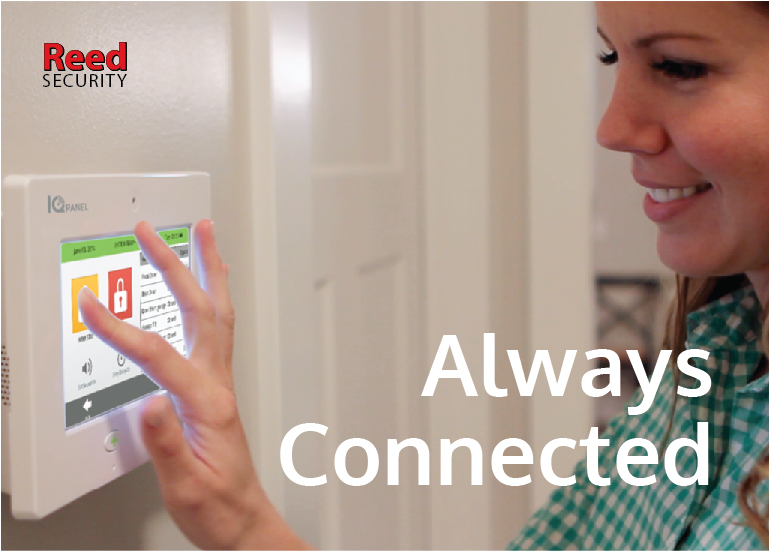
Are WIRELESS Alarm Systems Better Than Wired Ones? –
Part 2
In my last blog, we took a look at why all-in-one,
fully-wireless alarm systems are so popular, but also why they don’t hold up
very well in extreme circumstances. There are other aspects of the system,
however, where “wireless” can be a very good thing, including communication. Today
we will take a look at how an alarm system communicates with the monitoring
station, and the potential benefits to communicating wirelessly.
There are essentially three different communication methods
available to today’s alarm client, and we’ll look at the pro’s and con’s of
each of them.
1. Phone Line
Since the inception of electronic alarm systems in the 1920’s,
phone line has been the “traditional” method of communication. Every house and
business always had a landline; therefore, it was cheap to implement for the
Alarm companies. The technology currently in use hasn’t changed much in
decades, and is essentially the same as that used by a fax machine.
The problems with this communication method are two fold:
the signals are sent slowly (takes around 30-60 seconds for a single signal to
be transmitted), and it relies entirely on your phone line. Should the line go
down, or should a smart criminal cut the lines coming into the building (I’ve
seen it happen), the alarm cannot communicate. Many phone systems also require
power, so a power outage renders your system inoperable.
Not only that many people are cancelling their landlines. I
cannot tell you the number of times a client has called me up saying “my alarm
system isn’t working”, only to find out 30 seconds later that they cancelled
the home phone line a month ago! There are cheaper, internet-based alternatives
to phone lines (known as Voice Over Internet Protocol, or VOIP), but most alarm
systems aren’t compatible with them.
Pros: cheapest
option available
Cons: can be
cut easily; relies on power; slow to send signals
2. Internet/Wi-Fi
In the case of internet communication, the alarm system is
wired directly into your router provided for you by your Internet Service
Provider, or ISP. Wi-Fi operation is a little simpler, as no physical
connection to your router is required. Again, this is a cheap option, because
the chances are you’re already paying for internet. However, like the land line
before it, this method relies entirely on your internet. If the internet goes
down, if there’s a power outage, or if your Wi-Fi drops, the Alarm System
cannot talk to the monitoring station.
Pros: utilizes
the internet you already have in the house; much faster than phone line
Cons: relies
entirely on your internet connection; must be directly wired into your network
3. Cellular
These communicators are essentially a small cell phone, and
use their own SIM card to communicate over the cell network. The signals are
transmitted very fast, and the communicator itself can make use of the Alarm
System’s backup battery, meaning that you never lose connectivity, even during
a lengthy power outage. Of course, these are still dependent on cell towers,
and in rural settings or in deep basements there can be issues getting a
signal; but for reliability, these are the best option currently available, and
will only improve as the cell coverage and signal type improve. Right now, most
use the 3G network, but as things most into 4G, LTE, and beyond, expect these
communicators to keep getting smarter and smarter.
Pros:
completely stand-alone (does not rely on your phone or internet); much faster
than phone line; no wiring required
Cons: more
expensive monthly
Note: I should point out that most internet/Wi-Fi/cellular
communicators now offer (at an added cost) the ability to use “Crash and Smash”
technology. This means that if someone breaks into the property intent on finding
and disabling the communicator before the alarm goes off, the system now sends
an “Alarm Pending” signal to the servers, which is then forwarded on to the
monitoring station 4 minutes later if no other signals are received. This is a
great backup, but 4 minutes is still a lot of free time for someone to have
roaming around your property unchecked!
Bottom Line
The bottom line when it comes to communicators is that
again, you want something that will ALWAYS send a signal, no matter what the
situation or who is trying to compromise your system. There is no one option
that is completely flawless, but it’s pretty obvious to me that the Cellular
option has the lowest risk-to-benefit ratio. Unfortunately, it is usually the
most expensive option, so you have to decide for yourself whether the
reliability and speed is worth the extra money. I should also note that any of
the non-landline options also open up the door to use smartphone and tablet
apps to monitor your system, and send you notifications via text or e-mail if
something goes wrong. In todays connected world, having that functionality is
almost a no-brainer.
My recommendation: pay the extra few bucks every month and
get a cellular communicator that you can not only trust, but offers you the
benefit of being able to check in on your system when you’re away.
Dave Schlegel
Owner
Oxford Security Systems
Reed Security Authorized Dealer
